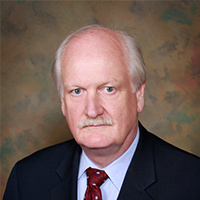 Austin DUI-DWI Lawyers, Texas
Austin DUI-DWI Lawyers, Texas
Sponsored Law Firm
-
 x
x

Click For More Info:
-
Law Office of Robert R. Jones III
2411 Emancipation Ave, Suite 202, Houston, TX 77004» view mapCriminal Defense Expert Representation for Reasonable Rates
If you need representation, call me 24/7.
800-883-8760
Sponsored Lawyers
1-10 of 18 matches
Criminal, DUI-DWI, Accident & Injury, Wrongful Death
Born and educated in Austin, Texas. Graduated from University of Texas undergraduate school in 1979 and from its law school in 1982. Licensed by the Texas Bar in 1983. I practiced with my father Bob Gibbins' law firm Gibbins, Winckler & Harvey from 1989 until the law firm ended in 2001. I resumed private practice as Law Office of Steve Gibbins focusing on personal injury and criminal law to the present. I am licensed to practice in every state and federal court in Texas and in the Fifth Circuit Court of Appeals as well as the United States Supreme Court.
(more)Criminal, DUI-DWI
Austin, Texas based criminal defense lawyer, E. G. "Gerry" Morris, has since 1977 represented individuals accused of state and federal crimes, both in trial and on appeal. He is Board Certified as a Criminal Law Specialist by the Texas Board of Legal Specialization. He has been elected by other criminal defense attorneys to leadership positions in both state and national organizations. He served as president of the Texas Criminal Defense Lawyers Association during the 1997-98 term and is currently a member of the board of directors of the National Association of Criminal Defense Lawyers.The legal community as a whole has, through peer rating, given him recognition as being among the top lawyers in the state. He is listed in the publication Best Lawyers in America and was named by Texas Monthly Magazine as on of Texas’ Super Lawyers in the area of criminal defense.Perhaps the best-known trial in which Mr. Morris was involved was the "Branch Davidian Trial." In that case Mr. Morris won an acquittal on all charges for his client.
(more)DUI-DWI, Family Law, Personal Injury, Mass Torts
In 1996, Attorney Novert Morales founded Morales Law Office, Attorneys at Law, PLLC., a private practice dedicated to representing individuals and families in need. Recognized as a skilled trial lawyer and litigator, Attorney Morales concentrates his practice on criminal law, personal injury, family law, and federal criminal law. Fluent in English and Spanish, Attorney Morales is able to help many different clients face their legal issues. With offices in Austin, Midland, and Georgetown, Texas, Attorney Morales and his team offer free consultations. To schedule an appointment with Attorney Morales, visit his website, or call 512-474-2222.
(more)DUI-DWI, Criminal, Accident & Injury
My Interest in criminal law is rooted in one thing -- my desire to help people. I grew up in Midland, Texas, where I received a bachelor's degree in criminology from the University of Texas. Later, I was awarded an academic scholarship to the Thomas M. Cooley Law School in Lansing, Michigan, where I made the Dean's List and honor roll and received my law degree. After completing a comprehensive internship at the East Lansing, Michigan, firm of Bodwin & Fuzak, P.C., I worked as a civil contract attorney for Daffer McDaniel, LLP in Austin, Texas on a large class action lawsuit. Afterward, I served as a criminal and family law attorney at an established law firm in Georgetown, Texas. The latter experience found me defending clients on the wide spectrum of criminal law charges I address in my current independent practice. My success in this area included helping clients suffering from mental illness receive a verdict of not guilty by reason of insanity. The tremendous experience and knowledge I gained in daily negotiations with local prosecutors and courts combined with my ongoing desire to help people protect their liberties in the face of criminal charges now drive everything I do in my own law office. I truly believe that you deserve the best legal representation you can get -- and that's what I provide.
(more)


 Robert Jones San Antonio, TX
Robert Jones San Antonio, TX AboutLaw Office of Robert R. Jones III
AboutLaw Office of Robert R. Jones III Practice AreasSpecializations
Practice AreasSpecializations




